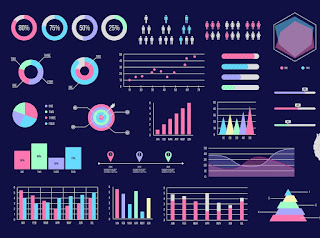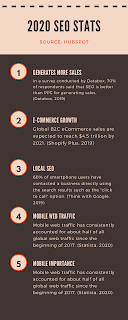What does Big Data mean for Small Business?
For the last few years, Big Data has become very relevant in everyday life. But what is Big Data? And what does Big Data really mean for Small Business? Companies that don’t see data as a strategic asset won’t survive. Big Data will affect every business and change how we do business. It doesn’t matter what field you operate in or the size of your business. That’s what I will explore in this blog post.
Big Data is an emerging field and a challenging concept to define precisely, but first, I will explain what data is. Data is all facts and figures stored in digital format like texts, images, audio, and videos. Big Data is large amounts of data that are too large to be analyzed by traditional tools.
Do you know what your customers want? Why they use your products/services? What do they think about your products/services? If you don’t know the answers, you’re at risk of being left behind by your competitors. According to Marr, there are three core areas where data really matters to business: improving decision making, improving operations, and monetizing data. For Big Data to be a valuable asset, it requires tools and methods that can be applied to analyze and extract patterns from large-scale data. That’s where Big Data Analytics comes to play a huge part.
Big Data has several applications in different fields and industries, and they have 5 characteristics:
Volume: represents the amount of data generated, stored, and operated within the system.
Variety: represents the multiplication of the types of data managed by an information system. This multiplication leads to a complexity of links and link types between these data.
Velocity: represents the frequency at which data is generated, captured, and shared.
Veracity: level of quality, accuracy, and uncertainty of data and data sources.
Value: the value and potential derived from data.
Marr believes that a company’s success will be driven by how well it can leverage data, apply analytics and implement new technologies. I think for this fact alone, all small businesses should understand what Big Data means for them.
How can small businesses leverage Big Data to their advantage? Where do they begin?
If you don’t know which type of data you need for your business, data itself is not a valuable asset and can become expensive and useless.
Marr believes that businesses should develop a smart strategy and focus on their data to achieve their goals. A business should ask what they want to achieve and how data can help them get there.
Small business can start to immerse in the world of Big Data in a few steps:
1 Step: define the business-critical questions that need answering and then collect and analyze only that data to answer those questions.
2nd Step: collect only what you really need and what makes business sense.
3rd Step: identify how you will collect or access it. Data collection tools include sensors, video, GPS, phone signals, social media platforms, and many more.
Once you have your data strategy in place, you’re very clear on what data you want to collect, you know the tools you’re going to use to collect the data, you are on the way to use data to drive real business value.
If you’re a small business and have a desire to make smarter decisions – decisions rooted in data, rather than gut feelings or assumptions, sign up for our master class. This master class is for small businesses that don’t have the resources to employ a third party to analyze big data. We will simplify one tool, google analytics, a free online tool, and show you how to use it for your business. You will learn how to transform reports into business insights to help you make better decisions.
Rejane Stratton
Reference:
Marr, Bernard (2017). Data Strategy. How to profit from a world of big data, analytics, and the internet of things. Great Britain and the United States: Kogan Page.
Youssra Riahi, Sara Riahi (2018). Big Data and Big Data Analytics: Concepts, Types and Technologies ‘International Journal of Research and Engineering’, Vol. 5 No. 9 | September-October 2018 | PP. 524-528, https://www.researchgate.net/publication/328783489. (Accessed: 24 Jan 2021).





One great way small business can greatly leverage Big Data is in identifying trends. Trending topics on Facebook and Twitter can tip a small business off as to how demand for their products or services will change over time. Agencies that specify in analysing Big Data could be brought in to produce detailed reports tailored to specific requests: companies such as Trendhunter and Trendera have a great selection of free reference material on this topic and also offer bespoke services. A small business no longer has to guess how their customers are going to act in a month, a year or even longer: they can analyse data and make informed decisions based on trends.
ReplyDeleteTo truly harness the immense value of big data, small businesses must utilise the correct big data tool or tools to evaluate and analyse their data. Examples of small business big data sources include - Email marketing reports, Sales receipts, Social media analytics, Website analytics, and Publicly available data.
ReplyDeleteIdeally, big data tools can undertake the following actions: data integration, data preparation, data governance and data quality. A small business must ensure that all its data sources can integrate to give actionable information. They are ensuring that the data source is cleansed, prepared and presented in a valuable format. Ensuring that data is viable, usable and managed securely should be of paramount importance to all small businesses.
The potential of big data has yet to be fully utilised by organisations today, particularly small businesses. The merits can bring considerable profit as well as highlighting areas of growth, potential or indeed improvement. A master class is an excellent idea, one session can introduce small business owners to the potential of their data and how to leverage it to improve their organisation. The resulting business insights would be key to ensuring competitive footing in the market.
ReplyDeleteThe emergence of Big Data has definitely been a fantastic way to improve business practices. It would be interesting to see the impact of Big Data on the longevity of smaller businesses and compare with companies who have not utilized this opportunity. Big Data is a great way to future proof a company with predictive analytics and essential for smaller businesses during the current climate. Providing a master class to smaller businesses is a great way to improve the abilities of their employees and prevent the need to hire an expert which could entail a heavy cost.
ReplyDelete